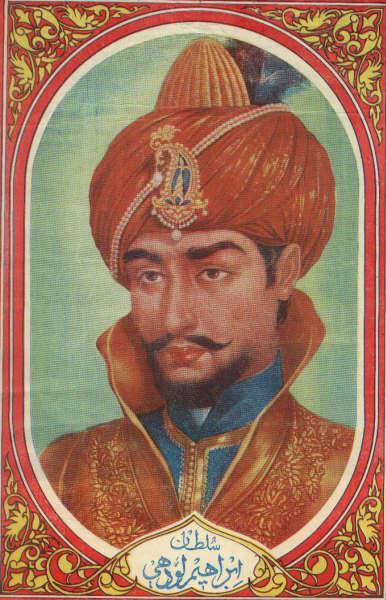For smooth Ad free experience
For smooth Ad free experience
Life in royal imperial courts was one of enigma, secrets and assassinations. The hunger for power and the throne instigated methods of dethroning the king cooking over the collective disapproval of conspirators. Besides the insider googlies, the threat of external invasions was the ever-looming cloud of darkness.

Happened on 21st November 1517
Similar was the life of Ibrahim Lodhi, the last sultan of the Delhi Sultanate. Everyone welcomed and accepted him as their king with open arms, only to regret their decision in the long run. The Lodhi court ran on the engine of cooperation and collaboration between the monarch and the nobles, who had direct control over court politics. The support of the nobles blessed the undisputable rule of the king, but a grudge with them meant an unstable reign.
Ibrahim's first impression did nothing to paint a positive image on the nobles. It became the bane of his political career, followed by a series of subsequent blows, which led to his ultimate demise.
After the natural death of his father, Sikander Lodhi, Ibrahim smartly avoided the war of succession by the new concept of 'dual monarchy'. The idea was previously introduced during the reign of Sikander, who was against it. Ibrahim thought that the area of Jaunpur would be enough to appease his elder brother Jalal. Alas! Greed knows no bounds. Soon Jalal started hatching new plans, which disrupted the peace of the empire.
This division of power was unacceptable for the nobility, who formed an immediate dislike towards Ibrahim. However, Ibrahim was quick to take matters into his hands and removed the thorn from his path. Killing Jalal meant a decisive victory over the throne. But was it that simple?
While Ibrahim was still dealing with the unsettled nobles, an external threat from the Rajputana knocked at his door. Rana Sanga, the ruler of Mewar, had been eyeing Delhi for quite some time now. Rana Sanga got wind of the deteriorating relationships between Ibrahim and the nobles, and only a fool would let go of this opportunity. With this thought in mind, Rana Sanga's army marched to the village of Khatoli to confront Ibrahim's forces in 1598.
Within a short time of 5 hours, Sanga's forces swept the enemies clean. The highlight of the victory was capturing the enemy himself. Rana Sanga proudly jailed Ibrahim in return for territory and heavy ransom, which dented the sultan's coffers. Besides the financial loss, Ibrahim lost any respect in his kingdom.
Enraged by the slanting insult, Ibrahim decided to avenge the previous battle with a new one. The Battle of Dholpur had to be the proud moment for Ibrahim to reinstall his status as the sultan. The luck was on his side, for Rana Sanga's forces won decisively. After losing for the second time, Ibrahim concluded that it was better to avoid Rana Sanaga at all costs.
Ibrahim's reputation was in shambles, and so was his reign. Not only had he disappointed the nobles, but he went on to tarnish the glory of his precessors. Everyone lost faith in him and wanted a new ruler.
The worst betrayal came from Ibrahim's uncle, Daulat Khan, who invited Babur to take over the kingship of Delhi. Babur was no fool to refuse such an offer, and that's how the First Battle of Panipat was fought in 1526.
With a huge army of about 50,000 to 120,000 men, anyone would expect Ibrahim to win. But Babur, with a smaller army, cultivated the seeds of the Mughal Empire. Babur's small army consisted of well-trained soldiers equipped with savage weaponry. Coupled with Babur's military prowess and war strategy, Ibrahim's doom was inevitable.
Indeed the doom's day for Ibrahim came sooner than expected. Ibrahim's demise erased all traces of the Delhi Sultanate's glorious past.
0
You might be interested in reading more from
